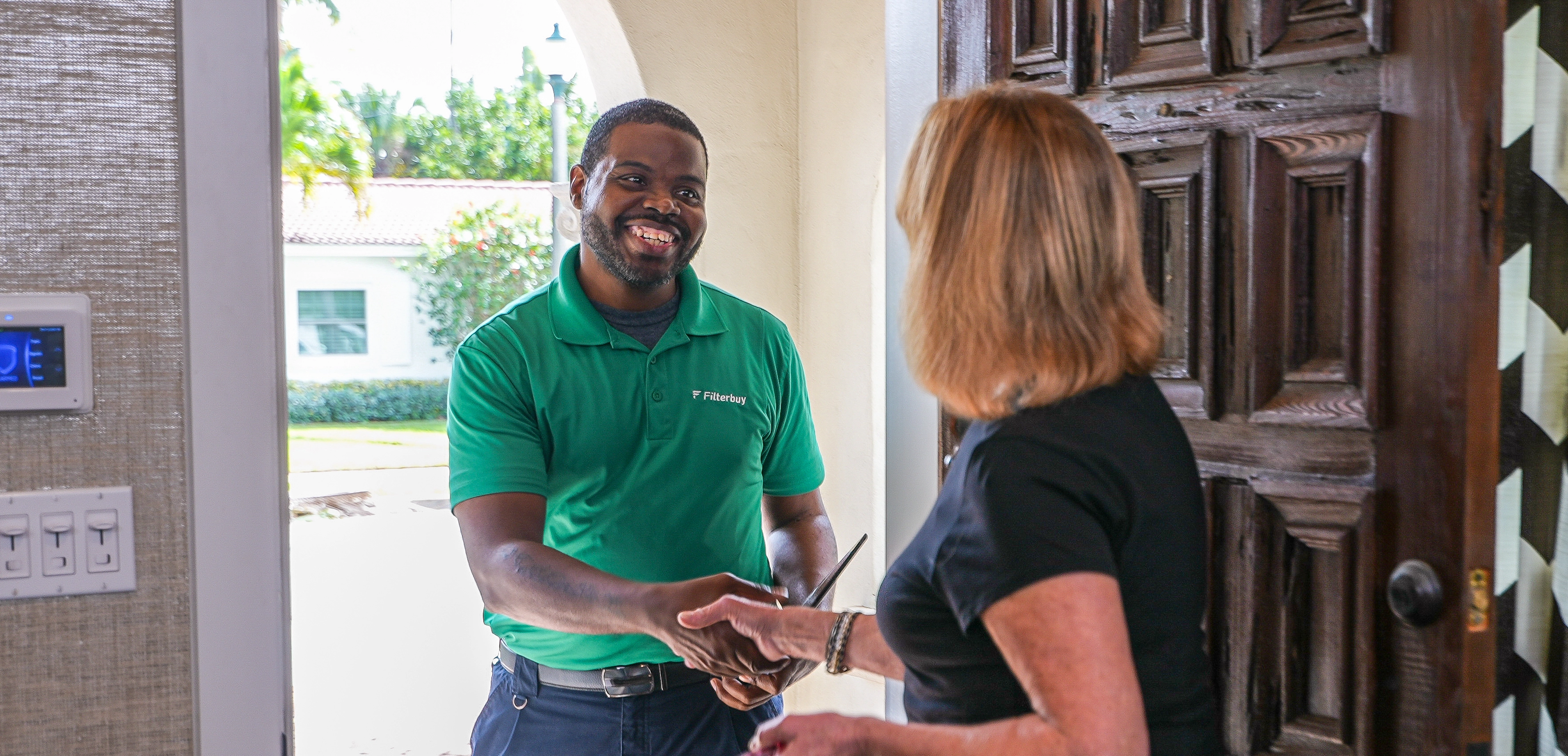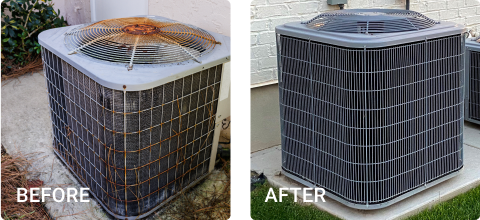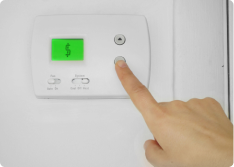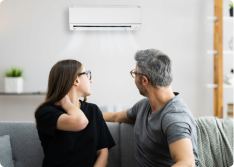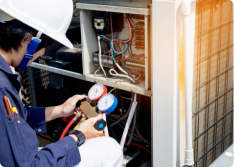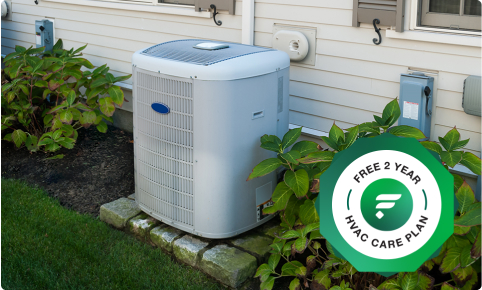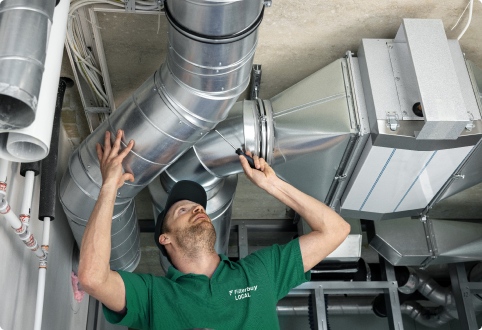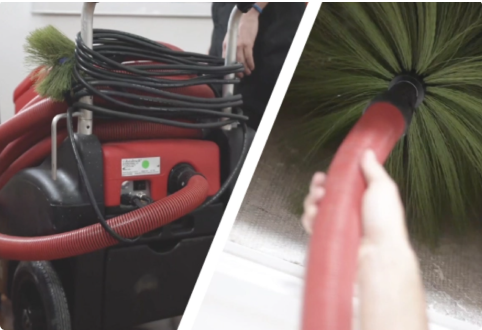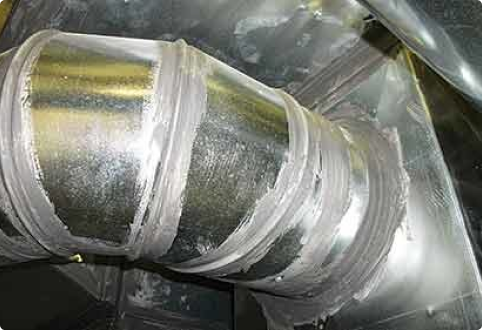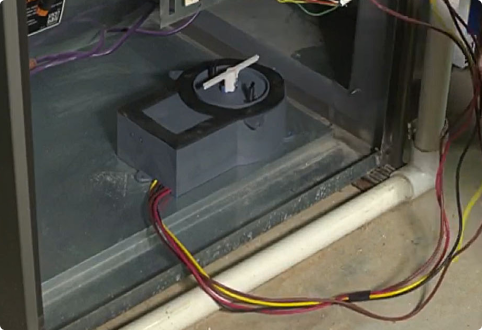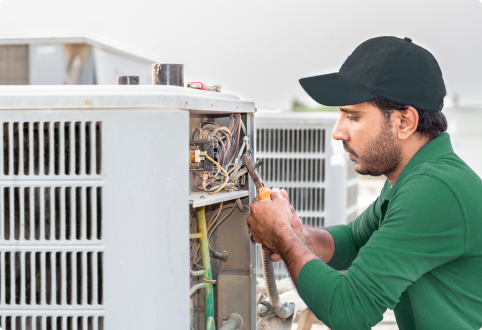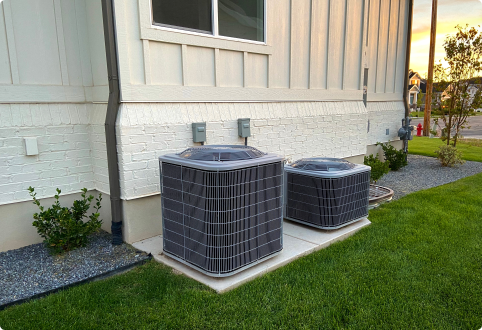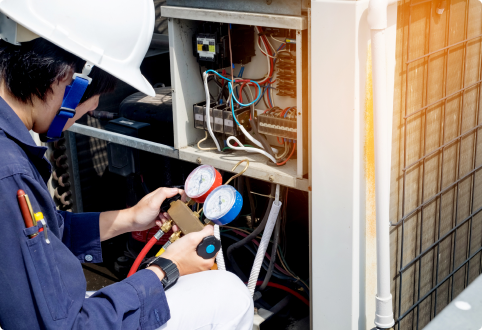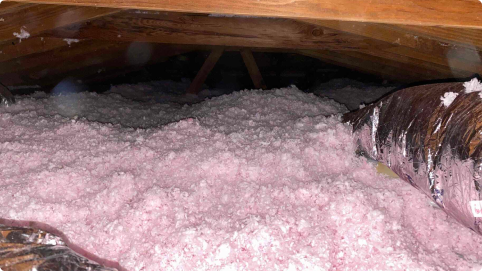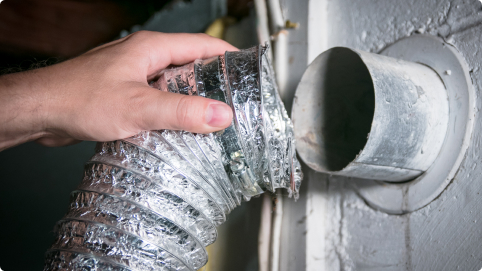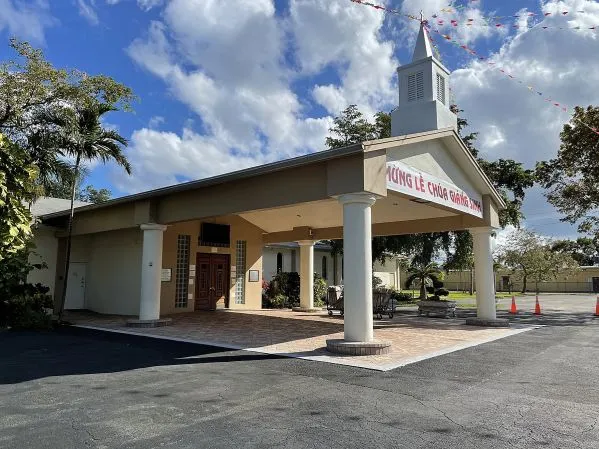Welcome to Filterbuy HVAC Solutions, the best HVAC system installation service company proudly serving in and near the greater Hallandale Beach, FL area. Please let us know how we can help solve your Hallandale Beach HVAC system installation needs with professional, affordable, and fast residential and commercial HVAC services by getting a free online quote or by giving our friendly HVAC specialists a call. We look forward to hearing from you!
HVAC Installation Hallandale Beach
HVAC installation in Hallandale Beach, FL is a great way to keep your home comfortable and energy efficient. With the help of an experienced technician, you can install a high-quality system that will last for years to come. This article examines the benefits of HVAC installation in Hallandale Beach and why it's important to work with a professional who knows what they're doing.
Whether you’re replacing an existing unit or installing one from scratch, having an expert on hand ensures that everything is done right the first time around. Not only do professionals understand how each component works together, but they also know which brands are better suited for certain climates and environments.
Furthermore, they have access to specialized tools that make it easy to get the job done quickly and efficiently. Read on to learn more about the advantages of getting professional HVAC installation in Hallandale Beach!
Benefits Of Professional Installation
Installing a new HVAC system is like building a house; it requires careful planning and execution to ensure the job is done right.
Professional installation of an HVAC system in Hallandale Beach, FL will take away any worry you may have about making sure everything is installed correctly and efficiently. You’ll also get access to expert advice on how best to maintain your system and keep it running smoothly for years to come.
Having the right climate control solution for your home or business depends heavily on understanding your local environment and weather patterns. Taking into account factors such as temperature extremes, humidity levels, air quality, wind direction, and velocity can help inform which type of HVAC system would be most suitable for your needs.
It's important to remember that even if an efficient model was installed initially, these external influences can change with time so regular maintenance checks are key for ensuring continued comfort throughout the year. Moving forward then, let's consider how we can better understand our climate and environment.
Understanding Your Climate And Environment
Understanding your climate and environment is essential to selecting an HVAC system that meets all of your needs. It's important to consider the location of Hallandale Beach, as Florida weather can range from hot and humid in summer to cool and dry during winter months.
The size of the property being serviced should also be taken into account when deciding what type of system you need. Factors like how many rooms are included in the installation or if there will be multiple stories with different temperature zones should all be factored into choosing the best system for your space.
In addition to understanding the physical factors involved in a successful HVAC installation, it’s important to consider energy efficiency when making decisions about which brand and model you ultimately choose. With so much variety available on the market today, it’s important to find a system that not only fits your budget but provides optimal performance while using minimal energy consumption.
Taking these considerations seriously before investing in any new equipment helps ensure years of reliable use at an affordable cost.
Choosing The Right Brand And System
It's important to understand the climate and environment of your home or business before selecting a new HVAC system. Keeping that in mind, it’s just as vital to consider which brand and type of equipment you should choose for installation in Hallandale Beach, FL. When considering a new HVAC system, there are three main factors to keep in mind: cost, energy efficiency ratings, and overall durability.
According to statistics from the US Department of Energy (DOE), 43 percent of residential electricity use goes towards heating and cooling costs. Additionally, with an efficient HVAC system installed properly by experienced technicians, you can dramatically reduce those costs while also improving comfort levels throughout your space.
To help make sure you select the right system for your needs, start by looking at Energy Star-certified models. These products have been tested and proven to be more energy-efficient than standard options—saving up to 30 percent on monthly utility bills depending on usage habits.
You should also consider quality components like SEER rating and AFUE rating when comparing different systems; these will affect both performance and efficiency over time. Lastly, look into warranties offered by specific brands; this provides additional peace of mind down the road if any unexpected issues arise after installation is complete.
Now that you know what components to pay attention to when shopping around for a new HVAC system for Hallandale Beach, FL, it's essential to work with the tools available that best suit your needs—from qualified installers who abide by local building codes through financing programs designed specifically for homeowners or businesses owners alike.
Working With The Right Tools
Installing an HVAC system requires the right tools. It's essential to use equipment specifically designed for the job, as this helps ensure safety and quality results. Having the correct supplies is also important; screws, nails, tape measures, saws, and other materials must be available when needed. Additionally, it’s critical to have a reliable source of power so machinery can function properly throughout the installation process.
Ensuring high-quality results not only depends on having proper tools but also on how they're handled during installation. Professional installers know that taking extra care with every step increases efficiency and accuracy while reducing costs related to repairs or replacements down the road.
Furthermore, by following best practices such as reading instructions before beginning work, double-checking measurements against plans, and working efficiently yet carefully will lead to successful installations each time. As we move forward in our discussion about ensuring quality results from HVAC systems, keep these tips in mind.
Ensuring Quality Results
We understand that the results of any residential or commercial HVAC installation in Hallandale Beach, FL must be of the highest quality. That is why we strive to ensure:
1. Every element of our workmanship meets industry standards;
2. Our team members are certified and experienced professionals;
3. All materials used are top-quality and tested for durability;
4. We always provide a warranty on all services completed.
When it comes to providing excellent service, no detail goes overlooked by us. From start to finish, we keep your best interests at heart so you can have peace of mind knowing that your system will be reliable and long-lasting. It's part of what makes us confident about every single job we complete - big or small!
Frequently Asked Questions
What Are The Typical Costs Of An HVAC Installation In Hallandale Beach FL?
When it comes to the costs of an HVAC installation, there are a few factors that can determine how much you'll need to pay. These include the size and complexity of the project, as well as any additional materials or labor required for completion.
Additionally, location is important; prices in Hallandale Beach FL may be higher than in other locales due to different economic climates. Before starting your project, it's always best to do research into what typical installations cost in this area so you know what budget to expect.
Are There Any Special Permits Or Regulations I Need To Be Aware Of For My HVAC Installation?
Symbolizing the special permits and regulations of an HVAC installation, it's like a puzzle piece that needs to be put in place before you can start. It's important to be aware of these requirements before proceeding with your project so you don't run into any issues down the road.
Depending on where you live, there may be different local laws or codes that need to be met before installation. Make sure you check with your municipality beforehand so you know what permits or licenses are required for your specific area.
Are There Any Rebates Or Incentives For Installing An Energy-Efficient HVAC System?
Depending on where you live, there may be rebates or incentives available for installing an energy-efficient HVAC system.
These can come in the form of tax credits from your state government, special discounts from utility companies, and even federal grants to help offset the cost of replacing outdated HVAC systems with more efficient ones. In some cases, these rebates and incentives can save hundreds - if not thousands - of dollars throughout the lifetime of a new system.
What Is The Typical Timeline For An HVAC Installation?
The typical timeline for an HVAC installation typically depends on the complexity of the project and can range from a few hours to several days. Any necessary permits must be in place before work begins, as this will add time to the overall process. Additionally, if any new ductwork needs to be installed or existing systems need to be replaced, then more time should be accounted for in the timeline.
An experienced technician should provide an accurate estimate of how long it will take them to complete the job so you have a clear expectation regarding when your system is likely to become operational.
Are There Any Additional Services That Can Be Provided During An HVAC Installation?
When it comes to an HVAC installation, several additional services can be provided. From inspections and maintenance plans to energy-efficiency upgrades, the options vary depending on the needs of your home or business.
Companies typically offer these services as part of their installation package to ensure optimal performance from your system. It's important to discuss all available options with your installer so you can determine which ones best suit your needs.
What Does a New HVAC System Cost in Florida?
Navigating the cost of a new HVAC system in Florida can be a daunting task. This article aims to provide a comprehensive breakdown of the various factors impacting these costs. From unit types, and installation, to energy efficiency considerations, we will delve into all aspects that influence the price. Our goal is to equip readers with the knowledge needed to make informed decisions regarding their HVAC system investments.
Understanding Florida's HVAC System Costs
Considering the various factors influencing the cost, understanding the expense associated with installing a new HVAC system in Florida requires careful examination. The Cost Factors Analysis reveals substantial outlays in acquisition, installation, and maintenance. The Energy Efficiency Impact also plays a critical role, with energy-efficient models offering long-term savings despite higher upfront costs. Therefore, a balanced perspective is vital for a cost-effective decision.
Why Does HVAC Installation Cost So Much?
In this article, we aim to demystify the seemingly high costs associated with HVAC installation. By delving into the intricacies of materials, labor, and other factors, we aim to provide a comprehensive understanding of the pricing structure. This knowledge will empower homeowners to make informed decisions when it comes to investing in HVAC systems.
Understanding HVAC Installation Costs
One must comprehend several factors to fully grasp the high costs associated with HVAC installation. A cost breakdown analysis reveals two major components: equipment and labor. The impact of labor expenses is significant, often accounting for a large portion of the total cost. Understanding these elements can provide valuable insight into the seemingly high prices of HVAC installation services.
What Is the Most Common HVAC System in Florida?
Florida's unique climate necessitates efficient HVAC systems for optimal comfort. This article explores the most commonly used HVAC systems in Florida, examining their features, benefits, and suitability for the region's weather conditions. We delve into the factors influencing this preference, providing insights for homeowners and businesses seeking to understand the best HVAC solutions for Florida's unique environment.
Understanding Florida's Preferred HVAC System
The vast majority of homes in Florida utilize central air conditioning systems, primarily due to the state's hot and humid climate. System efficiency is crucial in this context to mitigate high energy usage and costs. Additionally, understanding the climate impact of these systems aids in formulating strategies to reduce carbon footprint while maintaining indoor comfort in Florida's challenging weather conditions.
What Is the Best Type of AC Unit for Florida?
In the unique climate of Florida, choosing the right air conditioning unit is crucial for maintaining a comfortable home environment. This article will explore various types of AC units, evaluating their suitability for Florida's high temperatures and humidity levels. Stay tuned to make an informed decision that ensures optimal cooling efficiency and energy savings in your Florida home.
Understanding Florida's Unique Climate
Florida's distinct climate, characterized by high humidity levels and an average of more than 23 sunny days per year, necessitates the use of efficient air conditioning units. The humidity challenges faced by residents, coupled with the relentless sunshine impact, result in a unique set of requirements for HVAC systems. Therefore, in choosing an AC unit, understanding Florida's climatic conditions is of paramount importance.
How Much Is a New AC Unit for a 15 Sq Ft House in Florida?
Investing in a new air conditioning unit is a significant decision, particularly for homeowners in Florida's tropical climate. This article provides an in-depth analysis of the costs associated with purchasing and installing a new AC unit for a 15-square-foot house in the Sunshine State, helping homeowners make informed financial decisions. We will explore various factors influencing costs, including unit size, brand, efficiency, and installation complexities.
Understanding AC Unit Costs
Analyzing the costs of a new AC unit involves considering various factors such as the type of unit, installation charges, and the specific cooling needs of your home. Important cost variables include unit size and efficiency ratings. Pricing trends, influenced by market demand and technological advancements, also play a significant role in the final cost. Thus, a comprehensive understanding of these aspects is crucial.
What Time of Year Is Cheapest to Replace HVAC?
In the realm of home maintenance, strategic timing for HVAC replacement can result in significant savings. This article explores the seasonal fluctuations in HVAC replacement costs, offering insights on when you might garner the best value. We delve into industry patterns, supply and demand considerations, and additional factors that can influence pricing, equipping homeowners with the knowledge to make informed, cost-effective decisions about their HVAC systems.
Understanding Seasonal HVAC Replacement Costs
As a homeowner, it's crucial to understand that the costs of replacing your HVAC system can significantly fluctuate depending on the season. Through a cost factors analysis, one can discern that off-peak discounts substantially reduce prices. Typically, vendors offer these discounts in spring and autumn, making these seasons the most cost-effective times for HVAC replacements.
What Is the Most Expensive Part of an HVAC System?
In the realm of HVAC system maintenance and ownership, cost is always a significant consideration. This article will explore various components of an HVAC system, focusing on identifying the most expensive part. Through an in-depth analysis, we will provide insights into cost-determining factors and offer tips for the efficient management of these systems. Our goal is to help you navigate the financial aspect of HVAC system ownership with confidence and ease.
Understanding HVAC System Components Costs
In the course of maintaining, repairing, or replacing an HVAC system, understanding the cost of individual components is crucial for effective budgeting and decision-making. A cost analysis breakdown helps reveal the most expensive parts, aiding in better financial planning. Component replacement pricing, on the other hand, provides insight into the cost implications of potential repairs or upgrades. This knowledge is key to efficient system management.
Should I Replace My 2-Year-Old Air Conditioner?
As air conditioning units age, their efficiency can significantly decrease, leading to higher energy costs and discomfort during hot seasons. This article aims to guide homeowners in the critical decision of whether to replace their 2-year-old air conditioner unit, considering factors such as performance, energy efficiency, maintenance costs, and advancements in modern AC technology. Let's explore when it's time to say goodbye to your old AC and invest in a new model.
Evaluating Your Current AC Performance
To accurately assess the performance of your existing air conditioner, it is crucial to consider several key indicators. The efficiency assessment should focus on energy usage versus cooling output. Additionally, the maintenance history provides insight into the frequency of repairs, indicating the unit's reliability. Together, these factors illustrate the unit's overall cooling effectiveness and can guide the decision to replace or maintain the system.
What Seer Do I Need in Florida?
In Florida's tropical climate, choosing an air conditioning unit with the right SEER rating is crucial. This article aims to guide you through the concept of SEER ratings and their significance in energy consumption. It further helps you understand the ideal SEER rating needed for a Florida home to ensure optimal performance, cost-effectiveness, and energy efficiency. Let's dive into the specifics and make an informed choice.
Understanding SEER Ratings
The Seasonal Energy Efficiency Ratio (SEER) is a critical metric that measures the cooling efficiency of air conditioning units and heat pumps. It aids in the efficiency comparison of various models, enabling consumers to make informed decisions. However, SEER misconceptions may lead to faulty purchases, emphasizing the need for a thorough understanding and accurate interpretation of this crucial performance metric.
What Is the Life Expectancy of an HVAC Unit in Florida?
This article aims to provide an in-depth analysis of the average life expectancy of HVAC units in Florida. With Florida's unique climate conditions, HVAC units' performance can vary significantly. We will delve into factors affecting their longevity, maintenance tips for prolonging their life, and signs that it may be time to replace your unit. This information is essential for homeowners and property managers to ensure optimal comfort and energy efficiency.
Understanding HVAC Lifespan in Florida
In the context of Florida, the lifespan of an HVAC unit significantly depends on various factors such as the climate, usage, and maintenance routine. The Climate Impact is profound given Florida's humid and hot climate which can wear down HVAC units faster. A higher Maintenance Frequency is therefore necessary, ensuring the units operate efficiently and last longer in challenging weather conditions.
Can a Homeowner Install HVAC in Florida?
Navigating the complex landscape of home improvement in Florida can be challenging, especially when it comes to HVAC installation. This article will provide a comprehensive guide on Florida's HVAC regulations, addressing the pivotal question: Can a homeowner legally install an HVAC system in Florida? Join us as we delve into the legalities and intricacies surrounding this topic, designed to equip homeowners with the essential knowledge for their next home improvement project.
Understanding Florida's HVAC Regulations
Navigating Florida's HVAC regulations requires a comprehensive understanding of the state's specific requirements and stipulations. Recognizing the Regulation Impacts is key to adherence and non-compliance could result in penalties. Implementing Compliance Measures, such as obtaining necessary permits and following installation codes, ensures legality and safety. Familiarity with these intricacies can make the process of installing your HVAC system more efficient and less stressful.
Do You Need a Permit for HVAC Replacement in Florida?
Navigating the regulatory landscape for HVAC replacement in Florida can be complex. This article aims to provide clear, concise information about permit requirements for HVAC system replacements within the state. We will explore relevant laws, discuss potential penalties for non-compliance, and provide resources for obtaining necessary permits. Our goal is to equip homeowners and contractors with the knowledge they need to stay compliant while ensuring safe, efficient HVAC operations.
Understanding Florida's HVAC Permit Requirements
The process of obtaining a permit for HVAC replacement in Florida hinges on a set of specific regulations that homeowners must comply with to ensure safety and adherence to local codes. The permit acquisition process involves applications, inspections, and, often, cost implications. Understanding these requirements is crucial for homeowners planning HVAC replacements, to avoid penalties and ensure quality installations.
Conclusion
The cost of an HVAC installation in Hallandale Beach FL can vary greatly depending on the type and size of the system installed. It's important to understand all local permits and regulations before beginning any project, as well as taking advantage of any available rebates or incentives.
The typical timeline for an HVAC install is around 2-3 weeks, but it could be longer if additional services are required. For example, a family recently moved into a new home with an outdated heating and cooling system that needed replacing. After researching their options, they decided to go ahead with an energy-efficient heat pump system from a reputable vendor.
They made sure to get all necessary permits beforehand, were able to take advantage of various discounts, and even had some extra insulation added during the installation process – resulting in lower monthly utility bills and improved comfort levels.
Here is the nearest branch location servicing the Hallandale Beach area…
Filterbuy HVAC Solutions - Miami FL
1300 S Miami Ave Unit 4806, Miami, FL 33130
(305) 306-5027
https://maps.app.goo.gl/McXSNwHD9otb6ETq8

.webp)
.webp)
.webp)
.webp)






